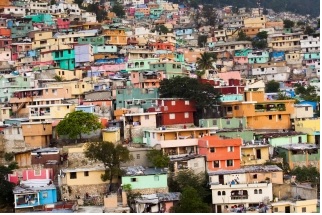Habitat for Humanity’s commitments to reduce poverty and foster more sustainable cities
In recognition of World Habitat Day, Habitat for Humanity sets plans for implementing the New Urban Agenda
ATLANTA (Oct. 4, 2016) – (RealEstateRama) — World Habitat Day, Habitat for Humanity joins the United Nations and other organizations around the world in raising awareness of the global need for adequate housing and mobilizing individuals and communities to take action.

This month, Oct.17-20, 193 countries will come together in Quito, Ecuador, for Habitat III, a U.N. Conference that will set policies for urban development around the world for the next 20 years, known as the New Urban Agenda.
Driven by the vision that everyone needs a decent place to live, Habitat for Humanity welcomes the U.N. Member States’ adoption of the New Urban Agenda and supports its emphasis on three areas: adequate and affordable housing, secure land tenure and community-led development.
Habitat will work to reduce poverty and foster more sustainable cities. In the coming years, Habitat commits to:
- A new urban approach. By 2030, nearly two-thirds of the world will be living in urban areas and the number of people living in slums continues to grow. To address this, Habitat for Humanity is introducing a new urban approach to promote sustainable cities. This approach is based on the premise that there are eight principles that are universal and essential for good urban and housing development, which can be implemented through various contextually adapted practices.
- Solid Ground advocacy campaign. Housing accounts for more than 70 percent of land use in most cities, yet 1 billion people in cities around the world lack secure land rights. Recognizing this need, Habitat has launched its Solid Ground global advocacy campaign to raise awareness and improve policies and systems to help 10 million people secure access to land for shelter. The Solid Ground campaign is focused on four key areas: secure tenure, slum upgrading, disaster resilience and gender equality.
- Inclusive housing markets. Government funding and private philanthropy alone cannot meet the shelter needs of the world’s population – local markets are critical. Through market development products and services, Habitat will accelerate and facilitate better functioning inclusive housing markets to enable over 8 million people to access improved shelter solutions by 2020.
- Increased access to housing for 40 million people. By 2020, Habitat will implement a wide array of community development strategies, advocacy initiatives and market development approaches, increasing housing access and affordability to housing for nearly 40 million people.
In a world that is rapidly urbanizing, these ambitious plans provide a roadmap for the next two decades.
“At Habitat for Humanity, we believe the future holds great potential, and we’re advocating for policies that will make life more livable for the millions of people who are drawn to the world’s cities in hopes of earning a better living and finding a better life,” said Jonathan Reckford, CEO of Habitat for Humanity International.
For more information, visit solidgroundcampaign.org/takeaction.
About Habitat for Humanity
Driven by the vision that everyone needs a decent place to live, Habitat for Humanity began in 1976 as a grassroots effort on a community farm in southern Georgia. The Christian housing organization has since grown to become a leading global nonprofit working in nearly 1,400 communities throughout the U.S. and in nearly 70 countries. Families and individuals in need of a hand up partner with Habitat for Humanity to build or improve a place they can call home. Habitat homeowners help build their own homes alongside volunteers and pay an affordable mortgage. Through financial support, volunteering or adding a voice to support affordable housing, everyone can help families achieve the strength, stability and self-reliance they need to build better lives for themselves. Through shelter, we empower. To learn more, visithabitat.org.












